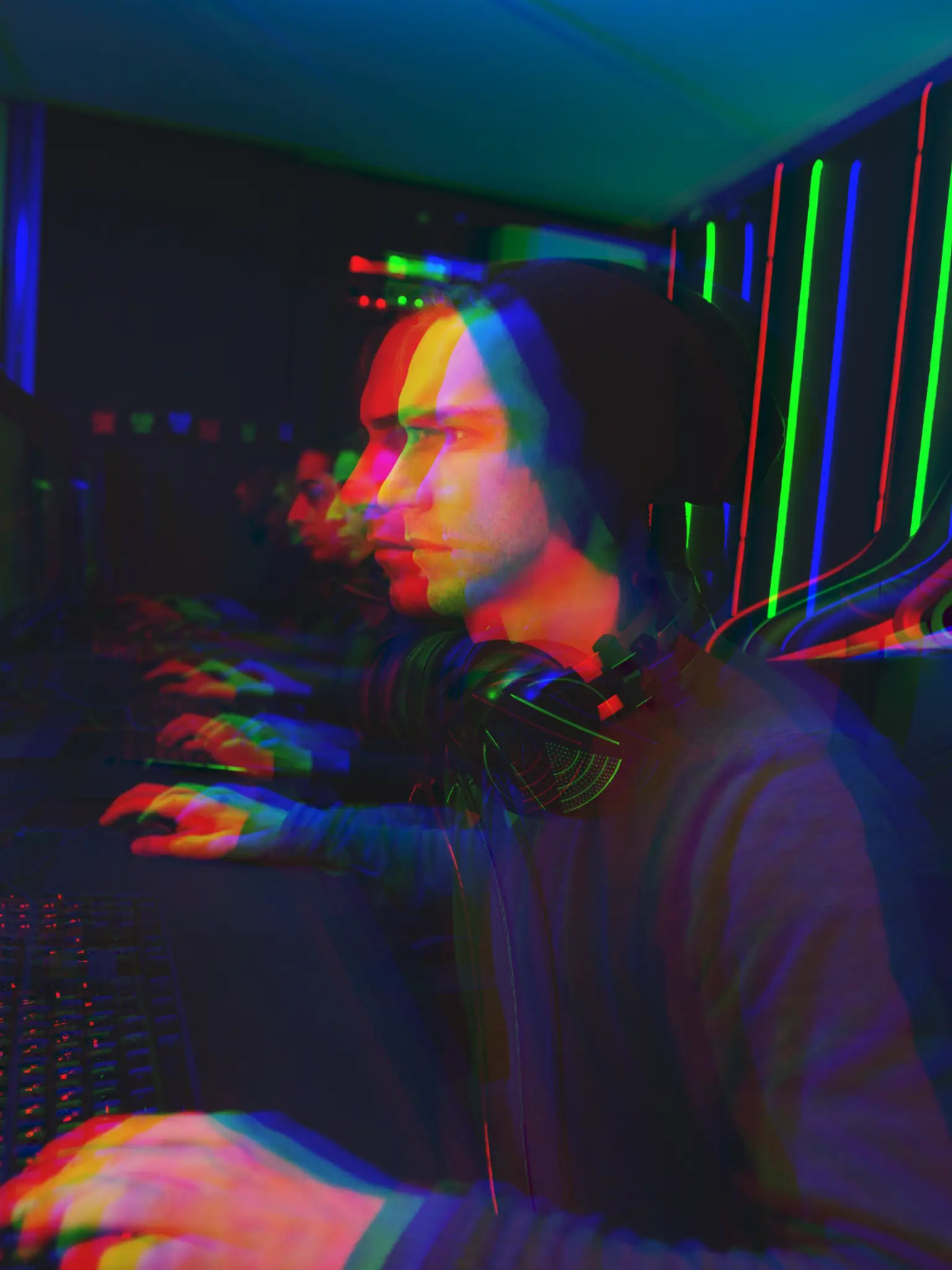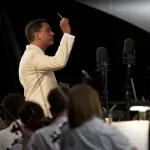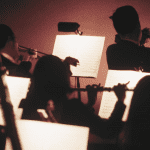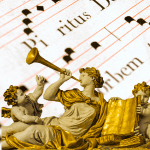Gamers and music lovers alike have long understood the connection between the two worlds. The worlds of gaming and music have long been intertwined, with a symbiotic relationship that continues to captivate gamers and music enthusiasts alike. The rhythmic melodies and immersive soundscapes found in video games have the power to enhance the gaming experience, evoking emotions and adding depth to the narrative. In this article, I will delve into the correlation between the music and gaming industries and explore how music influences players, making their gaming sessions more exhilarating. So, grab your controller, turn up the volume, and let’s dive into the rhythm of gaming!
Music: The Evolution from Arcade Games to Immersive Soundtracks
Music has always been an integral part of gaming, dating back to the early days of arcade games. In those simpler times, game soundtracks were catchy and repetitive, designed to complement the gameplay and keep players engaged. However, with advancements in technology, music in games has evolved into something more complex and immersive. Today, video game soundtracks can rival mainstream music albums in terms of production value and popularity. These meticulously crafted compositions set the tone, create an emotional connection, and transport players into the virtual worlds they explore.
Furthermore, music in gaming has the power to enhance the narrative and bring the game’s world to life. The dynamic nature of video game soundtracks allows them to adapt to the player’s actions, adding layers of depth and complexity. Whether it’s a change in tempo during intense boss battles or a melancholic melody during emotional cutscenes, the right music can evoke strong emotions and heighten the player’s immersion in the game’s storyline.
The Impact of Music on Gameplay and Performance
Apart from creating an immersive experience, music in gaming can also have a significant impact on a player’s performance. Scientific studies have shown that music can enhance cognitive and motor skills, making players faster and more accurate in their gameplay. In rhythm-based games, the beat of the music helps players time their actions, leading to higher scores and a sense of accomplishment. Moreover, the rhythmic cues provided by the music can also assist players in anticipating enemy attacks, giving them a split-second advantage in their decision-making.
Beyond the individual player’s experience, music in gaming has the potential to foster a sense of community and camaraderie among players. Games like Guitar Hero (which let my husband discover his inner Brian May) and Rock Band have brought people together, allowing them to bond over their shared love for music and gaming. Multiplayer modes in various games often incorporate music, creating a fun and exciting experience for friends to enjoy together. The power of music to connect people is undeniable, and in the realm of gaming, it brings individuals together in a unique and harmonious way.
The Role of Music in Shaping Gaming Culture
Music not only enhances the gaming experience but also plays a vital role in shaping gaming culture. Iconic game soundtracks have become synonymous with the games themselves, leaving a lasting impact on players long after they have put down their controllers. These memorable melodies become part of the gaming community’s shared language, igniting nostalgia and sparking conversations about favorite games and moments. The music from games like “Super Mario Bros.,” “The Legend of Zelda,” and “Final Fantasy” has transcended the boundaries of the gaming industry and become cultural touchstones, recognized and beloved by people from all walks of life.
Furthermore, music in gaming has opened doors to new creative endeavors. It has inspired aspiring musicians to create their compositions, remixes, and covers of game soundtracks, contributing to the rich tapestry of fan-made music associated with gaming. Platforms like YouTube and Twitch have given rise to a vibrant community of content creators who produce music-related videos, showcasing their talent and passion for both gaming and music. This intersection between gaming and music has created a platform for collaboration, enabling musicians and game developers to work together to create unique and unforgettable experiences.
The Emotional Power of Video Game Music
One of the most remarkable aspects of music in gaming is its ability to evoke emotions and create a lasting impact on players. Just like the score of a movie can intensify a scene or bring tears to our eyes, video game music has a similar effect. The right combination of melodies, harmonies, and rhythms can transport players to different emotional states, enhancing the overall gaming experience.
For instance, during intense action sequences or boss battles, the music might feature fast-paced rhythms and soaring melodies, pumping adrenaline through the player’s veins and heightening their excitement. Conversely, during more introspective moments or emotional cutscenes, the music may adopt a slower tempo and more melancholic tones, evoking feelings of sadness, nostalgia, or even joy, depending on the context. This emotional resonance creates a powerful connection between the player and the game, making the experience more profound and unforgettable.
The Art of Video Game Sound Design
While music undoubtedly plays a significant role in the gaming experience, it is essential not to overlook the broader aspect of sound design. Sound effects, ambient sounds, and voice acting all contribute to the immersive audio landscape that video games create. These elements work in harmony with the music, enhancing the player’s sense of presence in the game world.
Sound effects, such as the swoosh of a sword or the click of a gun reloading, add a tactile dimension to the gameplay, making actions feel more impactful and real. Ambient sounds, like the rustling of leaves or distant footsteps, create a sense of atmosphere and help players feel fully immersed in the game’s world. Voice acting brings characters to life, giving them a voice and allowing players to connect with them on a deeper level. When combined with the music, these various elements create a cohesive and immersive audio experience that elevates the overall gaming experience.
The Future of Music in Gaming
As technology continues to advance, the possibilities for music in gaming are expanding. Virtual reality (VR) gaming, for example, offers an even more immersive experience, where players can feel surrounded by the music and sound effects. The use of adaptive music systems, driven by artificial intelligence, allows for dynamic soundtracks that respond to the player’s actions in real-time, further enhancing the sense of immersion and interactivity.
Additionally, collaborations between musicians and game developers are becoming more prevalent, resulting in unique and innovative soundscapes that push the boundaries of traditional game music. Musicians are being invited to compose original scores or contribute existing tracks to enhance the gaming experience further. This collaboration between the music and gaming industries not only benefits players but also provides a platform for musicians to reach new audiences and showcase their talent in exciting and unconventional ways.
Conclusion
The correlation between music and gaming is a testament to the power of creativity and the ability of art forms to influence and inspire one another. Music has the incredible ability to elevate the gaming experience, adding emotional depth, improving cognitive skills, and fostering a sense of community among players. Whether you’re battling fierce enemies, exploring vast open worlds, or embarking on epic quests, the music accompanying your gaming sessions serves as your loyal companion, enhancing every step of your journey.
So, the next time you pick up your controller, take a moment to appreciate the music, and let yourself be carried away by the enchanting rhythm of gaming!







0 Comments